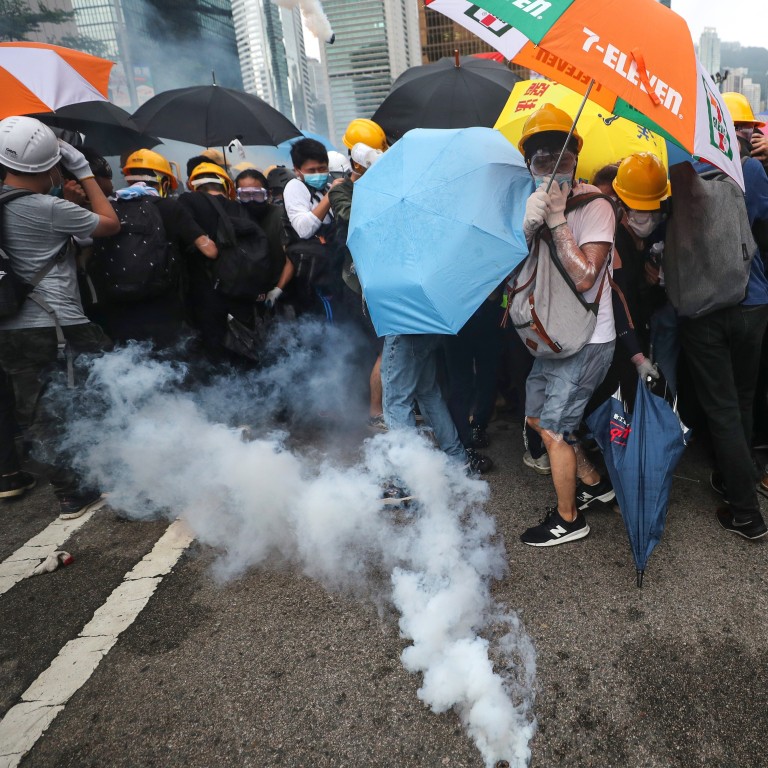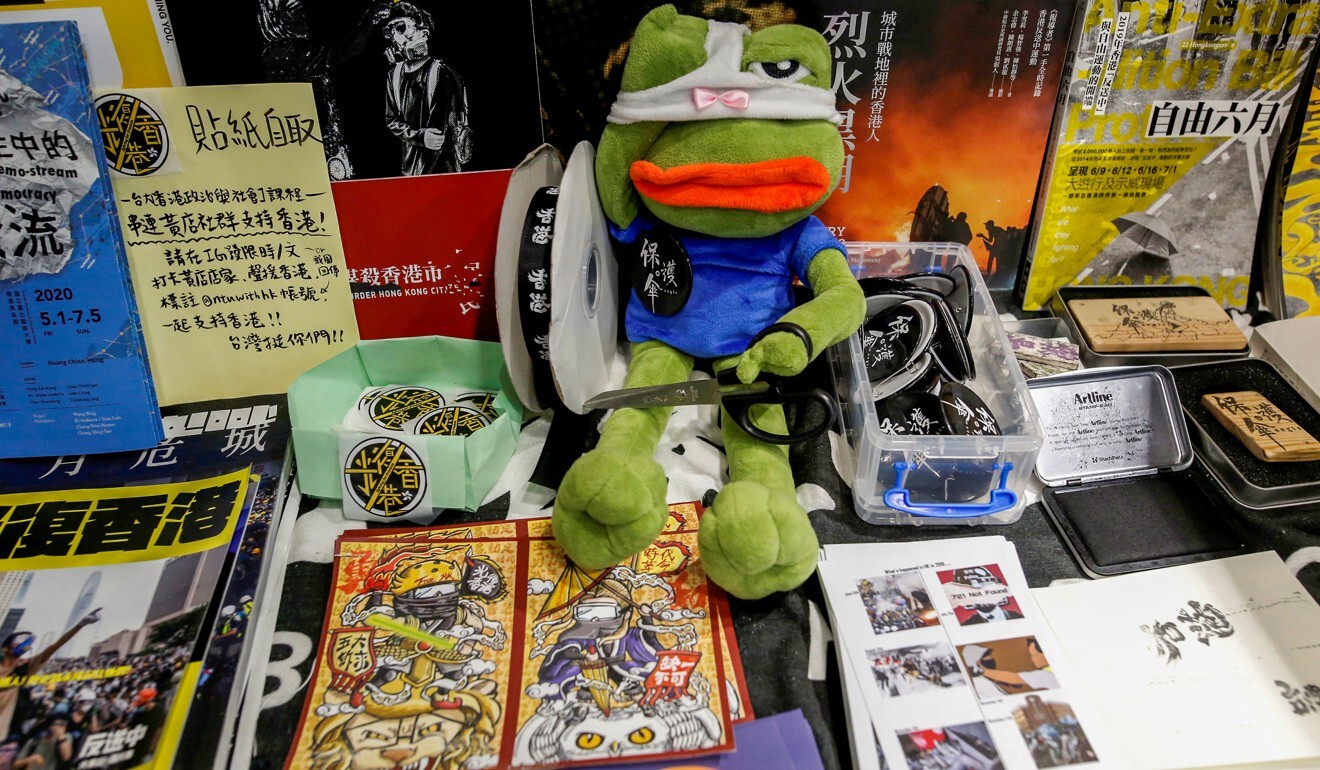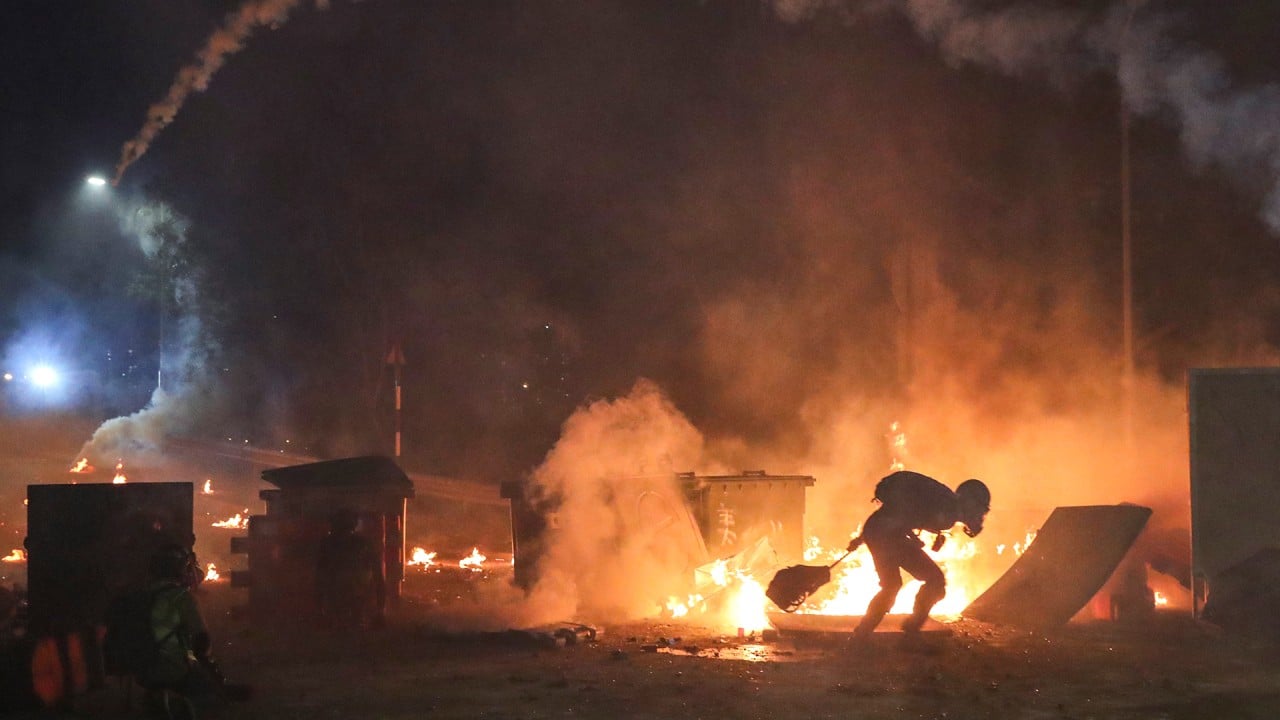
Protester who fled to Taiwan: ‘Tell my family I’m sorry for the trouble I’ve caused. I will never return to Hong Kong’
- Jack Chan, in his 20s, fled Hong Kong when police started looking for him over his involvement in a serious offence during the protests
- He is one of about 200 Hong Kong protesters believed to have headed to Taiwan after social unrest erupted in June last year
As Hong Kong marks a year since the anti-government movement began, the Post analyses how key players have fared. This is the fifth article in the series.
Chan, in his 20s, fled to Taiwan after Hong Kong police started looking for him over his involvement in a serious offence during the protests.
He declined to say what he did, but admitted he supported violent means because peaceful protests had proven futile.

“I want to tell my family that I am sorry for all the trouble I have brought them. They never scolded me, but they are very worried,” said Chan, who makes ends meet earning about NT$3,000 (US$100) a week from casual jobs.
“I don’t know what I will be like 10 years from now. I haven’t thought that far.”
All he knows is that he will never return to Hong Kong, because he fears being arrested as soon as he sets foot there.

05:03
‘I cannot do what I want and I cannot even work,’ says ‘lost’ Hong Kong protester who fled to Taiwan
About 200 Hong Kong protesters are believed to have headed to Taiwan after social unrest erupted in June last year.
Some left Hong Kong after being charged. Others fled while on bail after being arrested, anxious to avoid going to court.
Tipping point for security law? PolyU and Chinese University protests: source
According to people who helped them leave, there are between dozens and 100 Hong Kong protesters in Taiwan, some on tourist visas like Chan, while others have obtained work permits.
Although the bill was withdrawn, the protests continued through the second half of last year. Masked radicals vandalised property and threw petrol bombs and bricks at police, who responded with tear gas and other crowd dispersal weapons.
Can Hong Kong police chief’s new strategy cripple protest movement?
“The extradition bill was just outrageous,” Chan said. “I feared that people would be sent to the mainland on skimpy charges, and I just don’t trust the mainland legal system.”
He began attending protests regularly from June 11, when protesters gathered at the government headquarters in Admiralty, and was outside the Legislative Council the next day when police fired tear gas to disperse the crowd.
Chan said he was on holiday and out of Hong Kong when police showed up one day at his home after midnight, looking for him.
“My family was shocked. They knew I had taken part in the movement but did not know I was so involved,” he said.

01:37
Hongkongers mark a year after historic march
He did not want to reveal too much about his family, aside from saying they were working class. He also would not reveal where he was when police showed up.
But when he found out police were looking for him, he decided not to return to Hong Kong. He got on a flight to Taiwan and with the help of friends there, moved in with the other Hongkongers.
Defeat for Hong Kong protesters? One year on, pulse and purpose changes
Taiwan’s government promised to help Hong Kong protesters who chose to leave, prompting condemnation from Beijing.
Chan said he missed his family and comfortable bed in Hong Kong, but knew he had to make do for now. He said he had a girlfriend, but she broke up with him after he landed in trouble.
When he wants to call home, he borrows someone’s phone and keeps the conversations short, worried that his family members’ phones might be tapped.
Because he is in Taiwan on a tourist visa, he cannot get a legal full-time job. He has managed to find casual jobs in restaurants, usually working from 10am till midnight.
“It’s not a matter of whether I can get used to life here. I have no other choice,” he said. “My Mandarin is very bad. I understand the language but can’t speak it well. But people here have been nice to me.”

07:11
Rebel City: SCMP journalists reflect on a year of covering Hong Kong’s civil unrest
He said some Hong Kong protesters had obtained employment visas and were able to work, but others appeared to have gone into hiding because they were not sure who they could trust. He heard that some were in financial difficulty.
“I hope I can get in touch with them, so that we can help each other out,” he said.
Chan has applied to enrol in a Taiwan university, hoping that a degree will be his ticket to a better life.
He does not know if he will get a place. All he knows for certain is that Taiwan is his home for now.
“I will never go back to Hong Kong,” he said.
*Name changed at the request of the interviewee.
Previous articles in the series looked at police strategy , the future of the anti-government movement , the link between protest violence and the new national security law, and the ordeal of a constable severely burned in an acid attack.











